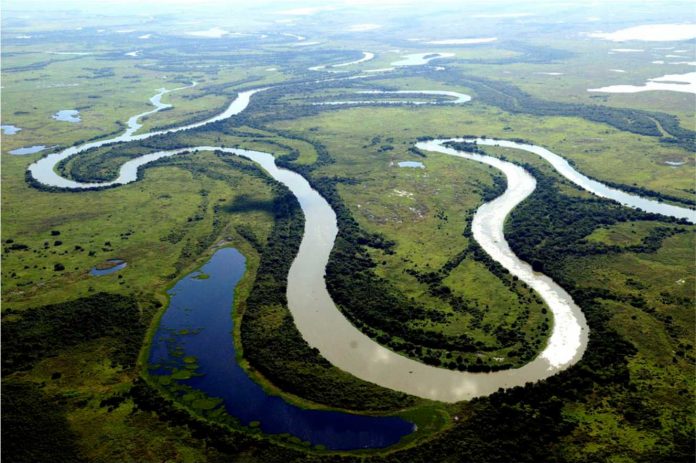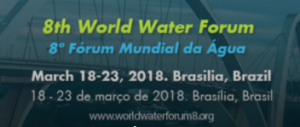Your Voice Digital Platform seeks stakeholder comment ahead of 8th World Water Forum
- September 20, 2018
- Posted by: administrator
- Category: Conferences, Global

The Your Voice Digital Platform is seeking further stakeholder comment ahead of the 8th  World Water Forum which will take place between 18th to 23rd March 2018 in Brasilia.
World Water Forum which will take place between 18th to 23rd March 2018 in Brasilia.
The platform was launched in 2017 to collect inputs from anyone interested in water, whether they experts or not. The comments have been organized by the moderators and will be presented at a session of the 8th World Water Forum.
One of the functionalities of the platform is the automatic translation of any language, facilitating the exchange of ideas and learning among people from different cultures.
Thousands of people from countries worldwide, including Brazil, the United States, France, Mexico and India, have already accessed the an on-line consultation platform and discussion space on water related topics.
The online consultation is composed of 6 discussion rooms, with a group of moderators, focusing on:
- Climate – water security and climate change
- People – water, sanitation and health
- Development – water for sustainable development
- Urban – integrated urban water and waste management
- Ecosystems – water quality, ecosystem livelihoods and biodiversity
- Financing – financing for water security
The current focus of the debates in the theme rooms is on the Sustainable Development Goals (SDGs). Discussions will focus on the challenges and opportunities for sustainable water development. The platform is open until March 12, 2018.
For Professor David Silva Fagundes, President of the Agenda 21 initiative in Taguatinga, Brazil there is an urgent need for effective actions so that water springs and courses have their natural flow and meet the growing demands of the Federal District’s population. “Many of the water sources in the Federal District have not even been mapped out through geoprocessing,” he recorded at the Your Voice platform.
Another Brazilian participant on the platform, Haroldo Cesar, commented:
“And here in Brazil, we must put an end to any destructive action such as suppression of native forests, as it is known that this has direct influence on the climate crisis and disastrous consequences in the hydrological cycles of the planet.”
Participants from India, Pakistan and Uruguay have also indicated the challenges in their countries and the need to protect water bodies, to have adequate infrastructure to treat effluents, and to contribute to more sustainable cities.
Mohammad Faiz Alam, from India, one of the moderators of the Urban Room, says it is possible to identify in the debates “problems that are common in all regions, and to understand people’s concerns.”
UN: more than 80% of all wastewater is discharged into environment without proper treatment
According to the United Nations World Water Development Report 2017, more than 80% of all wastewater is discharged into the environment without proper treatment, causing negative impacts on human health, economic productivity, the quality of fresh waters and ecosystems.
“Generally, the management of wastewater receives little social and political attention in comparison to the challenges concerning water supply, especially in the context of water scarcity. However, according to the study, the two processes are intrinsically linked – neglecting wastewater can cause negative impacts on the sustainability of water supply human health, the economy and the environment.”
In Brazil, a study by the Brazilian Water Agency (ANA) Wastewater Atlas: Basin Decontamination provides an analysis of the sanitation status of 5,570 Brazilian cities and the impacts of the deployment of sewage in rivers, lakes and reservoirs in the country. According to the document, 9.1 tons of raw sewage is generated per day, and 45% of the population lacks sewage treatment, whereas 55% have adequate sanitation.
More than 110,000 km of rivers stretches have their water quality compromised due to excess of organic loads. In 83,450 km of them, collection for public supply is no longer allowed due to pollution, and in 27,040 km, collection can be done, but it requires advanced treatment.
One of the functionalities of the platform is the automatic translation of any language, facilitating the exchange of ideas and learning among people from different cultures.
Click here to join the debates sessions on the Your Voice platform
